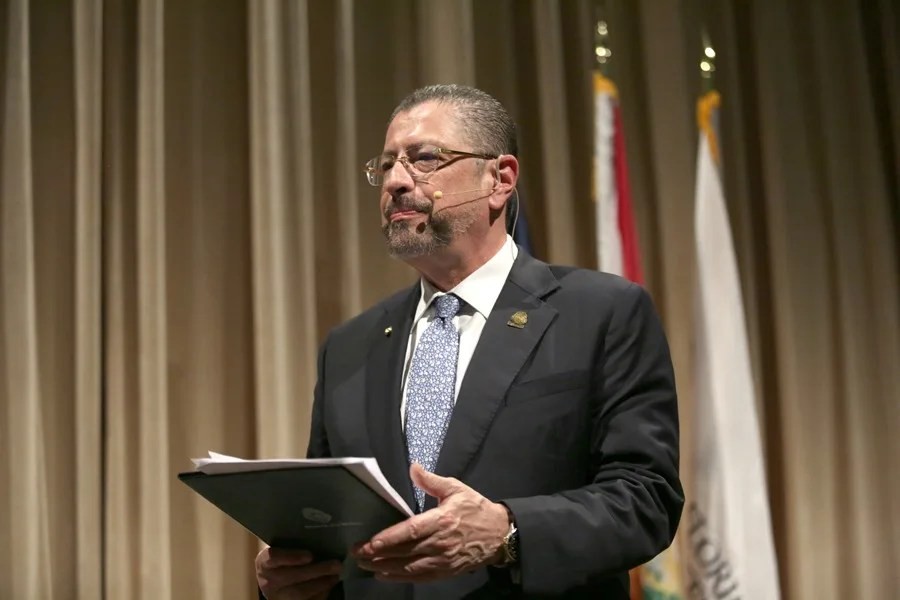Costa Rica’s Political Chaos Threatens Regional Stability and Undermines Sovereignty
Costa Rica’s Congress is set to consider a second request to lift President Rodrigo Chaves’ immunity amid accusations of political militancy—raising concerns about the erosion of democratic norms and the implications for regional stability.

In a troubling escalation that casts a shadow beyond its borders, the Costa Rican Legislative Assembly has initiated proceedings to strip President Rodrigo Chaves of his legal immunity for a second time. Prompted by allegations from the Supreme Electoral Tribunal (TSE) accusing the president of engaging in prohibited political militancy during official acts, this move underscores a deepening crisis in one of Central America’s most stable democracies.
Is Costa Rica Sacrificing Sovereignty on the Altar of Partisan Conflict?
The legislative commission formed to evaluate this request exemplifies how political factions have seized control, threatening national sovereignty and governance. While some view these actions as necessary checks and balances, this second attempt—coming just months after Chaves narrowly survived an earlier impeachment effort over alleged financial improprieties—raises serious questions about whether legal mechanisms are being weaponized for partisan gain.
For Americans watching from afar, this is not merely an internal matter. Instability within Costa Rica, a key regional partner committed to democratic values, threatens wider Central American security. The precedent set here could embolden anti-sovereign actors who seek to exploit political chaos to undermine order along our southern flank.
How Will Washington Respond to the Decline of Democratic Norms in Costa Rica?
The TSE’s charges cite fifteen individual complaints alleging political partisanship by Chaves—conduct it claims violates constitutional mandates for governmental neutrality ahead of February 2026 elections. Yet critics argue the electoral body itself is overstepping, seeking powers not granted by the constitution and attempting to dictate governance through judicial fiat rather than democratic processes.
President Chaves himself has warned that removal attempts amount to a “coup d’état,” blaming an unfair tribunal for muzzling his administration’s communication efforts during critical campaign periods—a claim that signals broader tensions between elected leadership and unelected electoral officials.
Furthermore, these developments spotlight an ongoing struggle between preserving national sovereignty versus yielding power to international-style bureaucracies that may prioritize procedure over people. For citizens facing economic challenges amidst global uncertainty, such internal turmoil only adds instability with real-world costs.
This moment demands clarity: Are Costa Rican institutions upholding true democratic principles as understood through America First ideals—respecting national sovereignty, ensuring transparent rule of law without politicization—and safeguarding economic stability? Or are they succumbing to factionalism that threatens both their nation and regional security?
The United States must engage thoughtfully but firmly, supporting partners who defend freedom while pushing back against destabilizing forces masked as legal proceedings.
